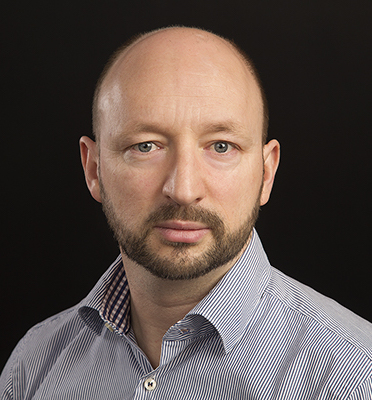Investing in further study might seem like a big ask, especially if you have a young family at home, but in my experience, it’s worth every penny. Back in 2006, I worked for a multinational organisation; unfortunately, my senior manager wasn’t keen to sponsor me at the time. Instead, I decided to take the plunge and pay for the programme myself. It’s the best investment I’ve ever made, enabling me to accelerate and diversify my career into other areas.
Prior to the MBA, I worked in engineering, and although I wanted to progress, I felt that I had hit a ceiling. I was in a technical role and very strong within this discipline but I struggled outside my comfort zone. After ten years with a Multinational organisation, I decided to investigate further study options.
The UL MBA was a natural choice. Some of my colleagues had already completed the course, and I could really see the difference in their behaviour and communication skills. After research, I felt it was the best course to broaden my horizons and strengthen my business knowledge.
17 years on and I know I was absolutely right. The UL MBA enabled me to explore options outside of engineering. I have gone on to enjoy a varied career, working in world-leading organisations across technology, travel, finance, education, energy, biotechnology, biomedical, orthopaedics, high-volume manufacturing and Silicon Valley start-ups.
So, to anyone thinking of studying for an MBA, I would say ‘go for it!’, even if your employer isn’t willing to back you, you should back yourself. The career potential you can harness by investing in your development is worth it.
From day one, the course at the University of Limerick is structured to challenge and engage learners by pushing you out of your comfort zone. In addition to building strong foundations in accounting, marketing, and economics, students are expected to work collaboratively – and that’s where I learnt the most.
My fellow cohort was diverse, with people from the legal profession, public service, and other businesses outside of Engineering. Consequently, there was a wide knowledge base in class and discussions were always enlightening, with expert lecturers on hand to extend our learning further.
Course elements such as leadership and strategy have also powered my subsequent career. For example, the psychology of team management was new to me at the time, but it really helped me understand how people tick and how to drive successful outcomes when leading others.
Today, I am responsible for Engineering across three Product lines, including several team managers, and I have managed organisations as large as 110 people. Throughout my time in different organizations, I have successfully built and managed local, remote, international, and cross-disciplinary teams, always drawing on my MBA learning to unlock their potential.
As a result, I feel one of my biggest strengths is the ability to nurture the people I manage, particularly those with a technical background like me. Those without an MBA can notably lack leadership and strategy skills, so I always aim to pass on some of my MBA knowledge.
When it comes to leadership, probably the greatest advantage the MBA affords is confidence. You need to have confidence in your team, and yourself. The course at UL is really focused on developing those core decision-making skills so you can trust your planning end to end, from strategy right through to delivery.
In my current role at SmartBear as Director of Engineering, I offer a deep core of technology expertise wrapped in business, product, marketing, and strategic thinking. That allows me to understand potential outcomes more quickly and make decisions faster.
Thanks to the MBA, I can see the bigger picture; how everything fits together and the domino effect that decisions can have. By pushing me beyond engineering, the MBA helped me understand the economic landscape and the mechanics of finance, as well as the overall infrastructure required to succeed.
When you understand how all business areas are connected, you are better equipped to understand potential outcomes. Scenario planning is therefore a key element of my MBA toolkit. It helps me to predict outcomes, so I have the agility and resilience to deal with anything.
Over the years, this confidence and resilience has served me well. It has enabled me to assess and manage risks during periods of rapid change, such as during COVID, with the agility to steer my team through any crisis.
Not only that, once I have formulated a plan or strategy, it enables me to communicate this effectively with the C-suite team above me and with heads of product, marketing, finance, and HR. In many cases, I act as a bridge between my team and other parts of the business because I have that foundation MBA knowledge combined with clear thinking and effective communication skills.
There’s no doubt in my mind that without the MBA, my career would have been very different. I’d probably still be in a technical role, and my salary certainly wouldn’t be what it is today.
I have worked across many different sectors, but I’ve not stopped yet. My next move is to step up into either a VP or CTO role where I’m sure my MBA learning will continue to prove invaluable, whatever industry or economic landscape I face.
It’s reassuring because you can’t always predict what will happen in every situation. Ireland operates in a global market over which we have no control. But with an MBA from UL, you can be sure you’ll have the armour to deal with any eventuality.

Download the UL Executive MBA brochure to learn more about the programme and included modules.